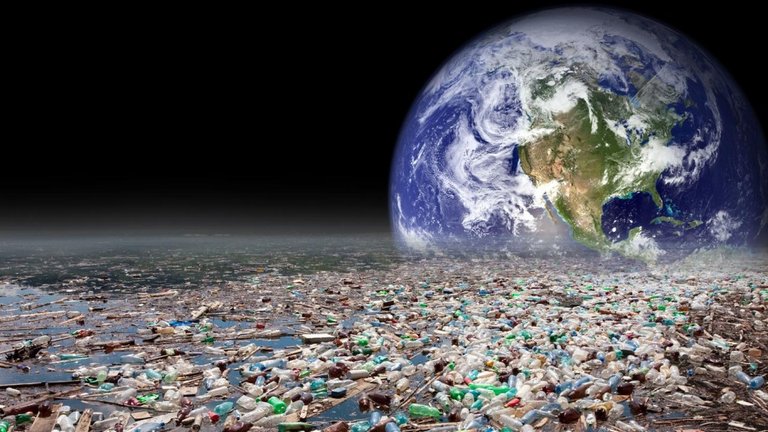Op-Ed by Emily Thompson
Over 3,300 delegates, with representatives from more than 170 nations and more than 440 organizations, just concluded their meeting in Busan, Republic of Korea, for the fifth session of the Intergovernmental Negotiating Committee (INC-5) to discuss the eradication of plastic pollution.
More than 100 countries favored measures to ratchet back plastic production, while oil-rich nations pushed back, arguing that the world should focus on reducing plastic pollution, not the production of plastic itself.
Throughout the week, from November 25 to December 1, delegates negotiated two documents by the INC Chair, Ambassador Luis Vayas Valdivieso, before agreeing on the closing day to delay the Chair’s Text to the next session.
On the last day of the summit, delegates had two options on the table.
The first, sought to create an avenue for establishing global plastic production caps.
[do_widget id=text-48]
A second proposal did not include production caps, but suggested ways to reduce pollution.
Inger Andersen, Executive Director of the UN Environment Programme (UNEP), said, “The world’s commitment to ending plastic pollution is clear and undeniable. Here in Busan, talks have moved us closer to agreeing on a global legally binding treaty that will protect our health, our environment, and our future from the onslaught of plastic pollution.”
However, Andersen said that while the meeting made good progress towards securing the deal the world demands, “it is clear there is persisting divergence in critical areas and more time is needed for these areas to be addressed.”
The delegates were unable to reach a consensus during the talks that would have capped two years of prior negotiations.
Observers said the treaty would have been one of the most significant environmental protection agreements ever signed, comparing it to the carbon emissions cuts anchored in the 2015 Paris Climate Agreement.
Still, the UN and other organizations have not lost hope and aim to achieve a final agreement next year when the conference convenes again.
“At UNEA 5.2, the world promised to tackle plastic pollution. Now, at the next round of talks, the world will have the opportunity to finally make that a reality. An opportunity we cannot afford to miss,” Andersen said.
Many environmental organizations also attended the summit to push for a treaty to address the volume of production and toxic chemicals used in plastic products.
The production and use of plastics globally is set to reach 736 million tons by 2040, according to the intergovernmental Organisation for Economic Co-operation and Development.
Each day, the equivalent of 2,000 garbage trucks full of plastic are dumped into the world’s oceans, rivers and lakes, according to the UN.
Plastic production is on course to triple by 2050 as scientists continue to find ever more microplastics in our bodies and our environment, including in our food and water supplies as well as the air that we breathe.
China is the biggest exporter of plastic products, followed by Germany and the U.S., according to the British Plastics Federation.
Together, the three nations account for a whopping 33% of the total global plastics trade. Less than 10% of plastics are recycled. Most of the world’s plastic goes to landfills, pollutes the environment, or is burned.
About 37% of all plastics are used in packaging, according to the UN. This includes single-use plastic food and beverage containers that often end up polluting the environment.
“Our mandate has always been ambitious. But ambition takes time to land. We have many of the elements that we need, and Busan has put us firmly on a pathway to success,” said Ambassador Vayas.
“Let us always remember that our purpose is noble and urgent: to reverse and remedy the severe effects of plastic pollution on ecosystems and human health,” he added.
In March 2022, at the resumed fifth session of the UN Environment Assembly (UNEA-5.2), a historic resolution was adopted to develop an international legally binding instrument on plastic pollution, including in the marine environment.
The instrument, according to the resolution, is to be based on a comprehensive approach that addresses the full life cycle of plastic, including its production, design, and disposal.
"We have tested the resilience of this planet to its limit, now is the time for us push our own limits and honour the trust placed in us – we have no choice but to succeed. You have the INC Secretariat’s and my unwavering support to get this done,” said Jyoti Mathur-Filipp, Executive Secretary of the INC Secretariat.
INC-5 follows four earlier rounds of negotiations: INC-1, which took place in Punta del Este, in November 2022, INC-2, which was held in Paris in June 2023, INC-3, which happened in Nairobi in November 2023, and INC-4, held in Ottawa in April 2024.
U.N. Environment Program Executive Director Inger Andersen told negotiators in Busan the treaty must tackle this problem.
“Are there specific plastic items that we can live without, those that so often leak into the environment? Are there alternatives to these items? This is an issue we must agree on,” she said.
These types of regulations take time; and while it would have been better to reach an agreement this year, there is progress and we will likely see a groundbreaking agreement next year and a final reduction in global plastic pollution.
Subscribe to Activist Post for truth, peace, and freedom news. Follow us on Telegram, HIVE, Minds, MeWe, Twitter - X and Gab.
Provide, Protect and Profit from what's coming! Get a free issue of Counter Markets today.

!LUV
@activistpost, @valggav(1/1) sent you LUV. | tools | discord | community | HiveWiki | <>< daily
Sharing on Twitter.
I see it not happening now and people are not paying attention to it at all and it will cause us a lot of damage going forward. It is not good for health.
It may never end up being hardened but recycled plastic
#hive #posh
We must reduce plastic use and pollution for earth goodness
Plastic is dangerous for health, contaminates food, should be removed for good